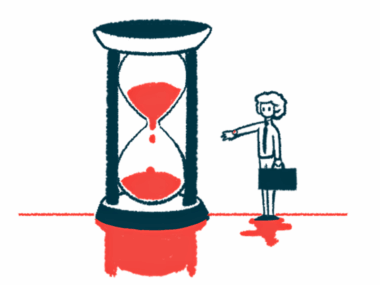Roctavian Recommended for Use in EU as 1st Gene Therapy for Hem A
Written by |

European authorities have recommended conditional marketing authorization for Roctavian (valoctocogene roxaparvovec), BioMarin Pharmaceutical’s one-time gene therapy for adults with severe hemophilia A.
This positive decision, from the Committee for Medicinal Products for Human Use (CHMP), makes Roctavian the first gene therapy for hemophilia A to be recommended for European approval.
CHMP’s opinion will now be passed on to the European Commission — the regulatory body with authority to approve medicines in the EU. Typically consistent with the opinion of CHMP, this final decision from the European Commission is expected in the next few months.
If approved, BioMarin plans to market the infusion therapy for adults with severe hemophilia A without a history of factor VIII inhibitors. Intended patients will not have detectable antibodies against adeno-associated virus serotype 5 (AAV5) — the viral carrier used to deliver the gene therapy into cells.
“The positive CHMP opinion offers hope for a new treatment option for people with severe hemophilia A, who have been bound to lifelong treatment and still experience serious health complications, such as breakthrough bleeding, pain, and joint damage, as well as having to constantly consider their condition in all aspects of their lives,” Johannes Oldenburg, MD, PhD, director of the Institute of Experimental Haematology and Transfusion Medicine at the Haemophilia Centre at the University Clinic, in Bonn, Germany, said in a press release.
As a result of mutations in the F8 gene, people with hemophilia A lack a protein called factor VIII (FVIII) that is necessary for blood clotting. The standard treatment for the disorder is lifelong infusions of FVIII replacement therapy to restore blood levels of the protein and prevent bleeding.
Delivered as a one-time infusion, Roctavian works by supplying a healthy copy of F8 that then allows the body to produce its own functional FVIII.
BioMarin first submitted regulatory applications for the experimental therapy in the U.S. and the EU in 2020. Those applications were based on six-month interim results from the global Phase 3 GENEr8-1 trial (NCT03370913), and three-year data from an ongoing Phase 1/2 dose-escalation trial (NCT02576795).
Both applications were rejected, however, with the regulatory bodies requesting additional follow-up data.
The CHMP has now based its positive opinion on all data from the Roctavian clinical program, including expanded two-year findings from GENEr8-1 and up to five years follow-up in the Phase 1/2 trial.
Earlier this year, the company announced that more than 80% of men with severe hemophilia A treated with Roctavian in the GENEr8-1 trial remained bleed-free after two years, and almost all participants were off standard factor replacement therapy.
The Phase 1/2 trial, still underway, is evaluating the seven-year safety and efficacy of increasing doses of Roctavian in 15 men with severe hemophilia A. BioMarin recently reported that either of two doses of the therapy successfully raised FVIII levels and controlled bleeds in 13 participants, who were followed for up to six years. All of the participants remained off of preventive factor replacement therapy at the time of the announcement.
As with previous data, results from both studies indicated that Roctavian was generally well-tolerated, with most reported side effects occurring soon after treatment. Side effects included temporary infusion-associated reactions and increases in liver enzymes that were not associated with long-term clinical problems.
“The robust data set from the clinical trial program underscores the potential impact of gene therapy for patients, including a substantial and sustained reduction in bleeding that would have previously required Factor VIII infusions,” Oldenburg said.
A conditional marketing approval, as recommended by the CHMP, recognizes that the benefits of a medication outweigh the scientific uncertainties surrounding its use. It allows for immediate market availability while clinical studies are still ongoing.
If such approval is granted for Roctavian, BioMarin will be asked to provide additional data from these ongoing studies within a specific period of time, with a standard marketing authorization contingent on their provision.
Such data will include longer-term follow-up from patients enrolled in GENEr8-1, as well as data from a Phase 3b study of Roctavian, called GENEr8-3 (NCT04323098), in which the therapy is given in combination with corticosteroids. Enrollment was completed earlier this year for that study, with top-line data expected in early 2023.
BioMarin anticipates that European approval may help provide additional patient access to the therapy through named patient sales in Middle Eastern and African countries, and could facilitate additional market registrations.
“We are grateful to the patients, investigators and community who have been an integral part in reaching this important milestone that brings us one step closer to delivering on the promise and ingenuity of gene therapy,” said Hank Fuchs, MD, president of worldwide research and development at BioMarin. “We are proud of this scientific accomplishment and committed to the ongoing study of Roctavian.”
A similar application to the U.S. Food and Drug Administration is expected to be resubmitted by the end of September, according to BioMarin.



